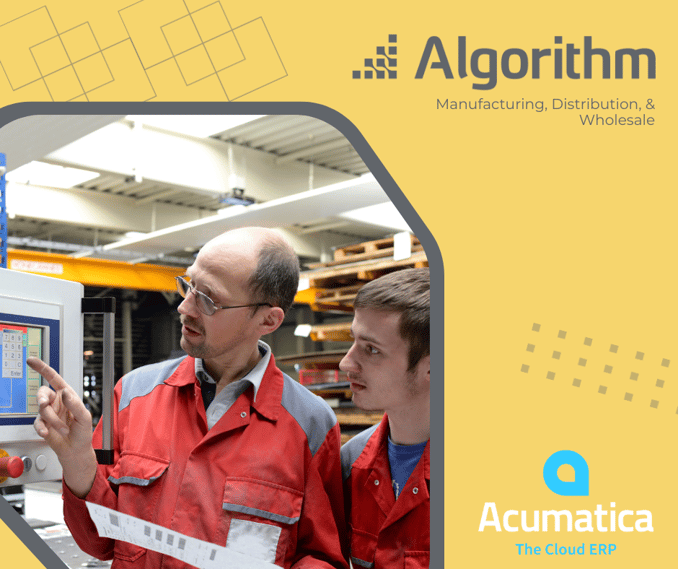![]() July 17, 2024
July 17, 2024
Revolutionizing Manufacturing: Attracting & Retaining Young Talent

In today's manufacturing world, we are witnessing a significant shift in the workforce. The older generation is retiring, leaving open positions that need to be filled by the next generation of workers. However, the manufacturing industry is facing challenges in attracting and retaining young talent. Let’s explore these challenges and provide strategies to revolutionize the industry and create a workforce that is ready for the future.
The current challenges faced by the manufacturing industry in attracting and retaining young talent.
Strategies for retaining young talent in the manufacturing industry
The role of technology in attracting and retaining young talent in the manufacturing industry
Integrating technology is a key strategy for attracting and retaining young talent in the manufacturing industry. The use of technology has completely transformed manufacturing processes, making them more efficient and reducing the need for extensive manual labor. By embracing automation, robotics, and other emerging technologies, the industry can create a work environment that appeals to young workers. This can involve implementing smart factories, integrating the Internet of Things (IoT), and utilizing data analytics. This shift towards technology not only boosts productivity but also attracts individuals who are tech-savvy and eager to work with cutting-edge tools and systems. By adopting these technologies, manufacturers can streamline processes, improve efficiency, and provide young workers with the opportunity to work with advanced tools and systems.Creating a positive company culture
One of the key factors that influence employee retention is the company culture. A positive and inclusive culture can attract and retain young talent in the manufacturing industry. To create such a culture, manufacturers should prioritize open communication, collaboration, and recognition of employees' contributions. Encouraging teamwork, providing a healthy work-life balance, and fostering a supportive environment can make young workers feel valued and engaged.
Additionally, manufacturers can establish mentorship programs where experienced employees can guide and support younger workers in their professional development. This enhances knowledge transfer and creates a sense of belonging and camaraderie within the organization.
Offering competitive compensation and benefits
Competitive compensation and benefits are essential for attracting and retaining young talent in the manufacturing industry. Manufacturers need to ensure that their salary packages are in line with industry standards and reflect the value and skills that young workers bring to the table. Additionally, offering attractive benefits such as health insurance, retirement plans, and flexible work arrangements can significantly enhance the appeal of manufacturing jobs.
Providing opportunities for growth and development
Understanding the expectations and motivations of young workers
To attract and retain young talent in the manufacturing industry, it is crucial to understand their expectations and motivations. Young workers value work that is meaningful and purposeful. They seek opportunities to make a positive impact and contribute to the greater good. Manufacturers can align their values and mission with those of young workers by emphasizing sustainability, social responsibility, and ethical practices.
Additionally, young workers value a healthy work-life balance. They prioritize flexibility and autonomy in their careers. Manufacturers can accommodate these expectations by offering flexible work arrangements, remote work options, and a supportive work environment that values work-life balance.
Conclusion: Embracing change and building a future-ready workforce in the manufacturing industry
Get latest updates on us
Popular blogs



Posts by Topic
Posts by Month
- December 2019 (3)
- December 2021 (3)
- March 2022 (3)
- October 2019 (2)
- January 2021 (2)
- November 2022 (2)
- May 2024 (2)
- March 2019 (1)
- April 2019 (1)
- May 2019 (1)
- June 2019 (1)
- August 2019 (1)
- September 2019 (1)
- November 2019 (1)
- January 2020 (1)
- March 2020 (1)
- April 2020 (1)
- June 2020 (1)
- November 2020 (1)
- February 2021 (1)
- March 2021 (1)
- May 2021 (1)
- July 2021 (1)
- October 2022 (1)
- January 2023 (1)
- March 2023 (1)
- August 2023 (1)
- November 2023 (1)
- December 2023 (1)
- February 2024 (1)
- March 2024 (1)
- June 2024 (1)
- July 2024 (1)
![]() June 26, 2024
June 26, 2024
![]() May 30, 2024
May 30, 2024
![]() May 2, 2024
May 2, 2024
![]() March 12, 2024
March 12, 2024
![]() February 6, 2024
February 6, 2024
![]() December 8, 2023
December 8, 2023
![]() November 10, 2023
November 10, 2023
![]() August 4, 2023
August 4, 2023
![]() March 19, 2023
March 19, 2023
![]() January 4, 2023
January 4, 2023
![]() November 29, 2022
November 29, 2022
![]() November 16, 2022
November 16, 2022
![]() October 23, 2022
October 23, 2022
![]() March 21, 2022
March 21, 2022
![]() March 14, 2022
March 14, 2022
![]() March 7, 2022
March 7, 2022
![]() December 14, 2021
December 14, 2021
![]() December 1, 2021
December 1, 2021
![]() December 1, 2021
December 1, 2021
![]() July 7, 2021
July 7, 2021
![]() May 17, 2021
May 17, 2021
![]() March 18, 2021
March 18, 2021
![]() February 19, 2021
February 19, 2021
![]() January 21, 2021
January 21, 2021
![]() January 21, 2021
January 21, 2021
![]() November 24, 2020
November 24, 2020
![]() June 10, 2020
June 10, 2020
![]() April 3, 2020
April 3, 2020
![]() March 24, 2020
March 24, 2020
![]() January 25, 2020
January 25, 2020
![]() December 19, 2019
December 19, 2019
![]() December 19, 2019
December 19, 2019
![]() December 19, 2019
December 19, 2019
![]() November 12, 2019
November 12, 2019
![]() October 18, 2019
October 18, 2019
![]() October 18, 2019
October 18, 2019
![]() September 25, 2019
September 25, 2019
![]() August 12, 2019
August 12, 2019
![]() June 6, 2019
June 6, 2019
![]() May 7, 2019
May 7, 2019
![]() April 17, 2019
April 17, 2019
![]() March 25, 2019
March 25, 2019
